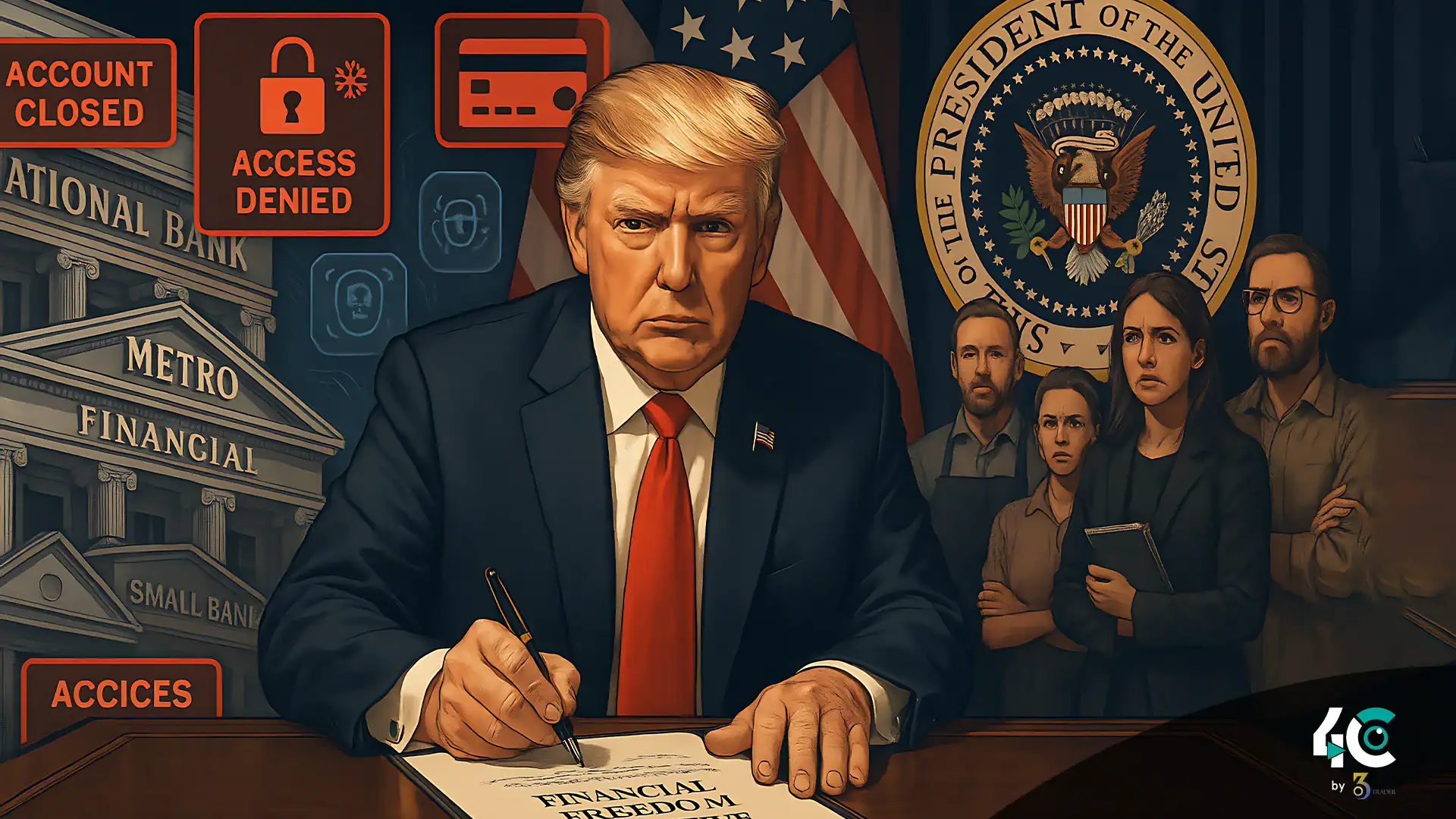Trump Plans Executive Action to Protect Crypto Firms from Financial Discrimination
According to a report by The Wall Street Journal, former U.S. President Donald Trump is considering an executive order to prevent banks from cutting off financial services to crypto firms and other businesses due to political or ideological reasons.
This move is seen as a direct rebuke of Operation Chokepoint 2.0, a term used by critics to describe how controversial industries—including cryptocurrency, firearms, and fossil fuels—are being excluded from mainstream financial institutions under the guise of risk management.
Protecting Financial Access for All
Sources told WSJ that the order is being drafted by Trump’s Domestic Policy Council, specifically under the direction of Vince Haley. It would bar U.S. financial institutions from “debanking” companies based on their political affiliations or the industries they belong to.
Industries like gun manufacturing, fossil fuels, and cryptocurrency have long alleged that they’ve faced unfair restrictions not because of financial mismanagement, but because of ideological disagreements.
During the Biden administration, over 30 crypto and tech founders were reportedly debanked—an issue that has stoked fears over targeted financial exclusion.
Crypto Industry Reacts
At the White House Crypto Summit, held on March 7, Trump stated that he plans to end Operation Chokepoint 2.0 entirely. Many in the digital asset community see the anticipated order as a key milestone toward ensuring neutral financial access.
Caitlin Long, founder of Custodia Bank, has expressed cautious optimism. On a March 21 episode of Chainreaction on X, she mentioned that real change might take time:
“Trump can’t appoint a new Federal Reserve governor until January. Even if the OCC and FDIC change their policies, the Fed may still resist.”
Custodia is one of several banks that experienced “debanking.” Long claims her bank suffered significant delays and financial losses as a result.
Banks Under Scrutiny
Executives from major U.S. banks—including JPMorgan Chase, Citigroup, and Wells Fargo—have begun discussions with state leaders in Texas and Oklahoma over allegations of denying services to firms in the energy and firearm sectors.
Earlier this year, during a Senate Banking Committee hearing, Senator Elizabeth Warren underscored the importance of financial inclusion, calling for greater accountability and equitable banking access for all legal industries.



























